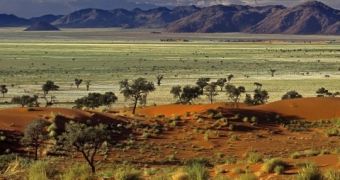A research published just yesterday and signed by specialists from the Goethe University in Frankfurt and the Biodiversity and Climate Research Center informs us that, given today's CO2 concentrations in the atmosphere, African savannas might soon be a thing of the past.
To be more precise: said scientists claim that, by the year 2100, these parts of the globe will be pretty much covered in forests.
Apparently, this soon-to-be-noticeable shift in typical African vegetation is due to the fact that atmospheric carbon dioxide allows for and even encourages trees to grow here.
As explained in the study, environmental and atmospheric conditions are directly linked to local vegetation. Thus, some plants thrive under certain conditions, whereas others simply have different needs.
This means that, once CO2 concentrations reach a certain level, the plants currently found in Africa will not be able to adapt to the new conditions and simply perish.
On the other hand, trees are known to have no problems when it comes to dealing with carbon dioxide, so they will naturally step in and replace local vegetation.
Science Daily reports that Steven Higgins, the lead author for this research, explains how, “This study showed that savanna trees were essentially CO2 starved under pre-indutrial CO2 concentrations, and that their growth really starts taking off at the CO2 concentrations we are currently experiencing.”
It is not difficult to guess that having savannas replaced by forest will also trigger other changes in African geography.
Thus, the animals living here will also have to adapt or risk extinction.
Not very long ago, we also reported on global warming turning the Arctic tundra into forests, and we explained how increased temperatures are setting the right conditions for local shrubs to turn into trees.
It seems that, as more studies are conducted throughout the world, it is becoming clearer and clearer that our natural world is about to undergo some considerable changes.

 14 DAY TRIAL //
14 DAY TRIAL //